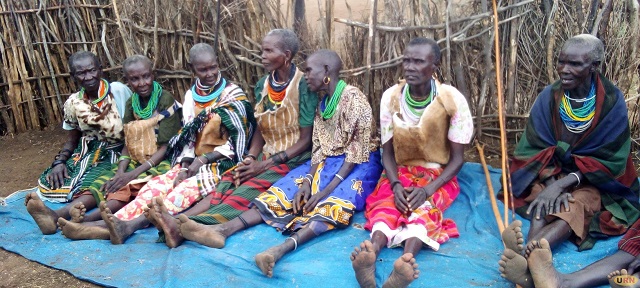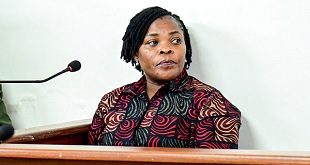
Moroto, Uganda | THE INDEPENDENT | Women activists in the Karamoja sub-region are urging the government to take action against the practice of widow inheritance. In Karamoja, it is common for a married woman to be inherited by her husband’s brothers after his death. While this practice is rooted in cultural norms, it violates women’s rights and leaves them suffering in silence.
According to activists, widow inheritance has forced many women into unwanted marriages with their late spouse’s brothers or sons from another wife. The women are now demanding the right to choose their partners after their husband’s death.
Lokwi Natalina, a widow from Nachola village in Nadunget sub-county, Moroto district, shared her experience, revealing that she has been married three times to different brothers of her late husband. “My husband paid 100 head of cattle as dowry, and when he passed away, one of his brothers inherited me. Later, that brother also died, and I was given to another brother, who also passed away,” Natalina explained. She added that this inheritance was imposed by the clan, as they believed her dowry had been paid for.
Maria Lochoro, another widow, stated that she was inherited by her late husband’s brother against her will. “The man was not my choice, but I couldn’t refuse because it was an order from the elders,” she said, adding that women like her are uncomfortable with the practice and are calling on the government to intervene.
Lochoro highlighted that the elders would not listen to their concerns, as their mindset is focused on cattle. “We only call upon the government to come to our rescue because the elders are not giving us the chance to explain how these negative norms are affecting us,” she said.
Lochoro also noted that widow inheritance has exposed them to sexually transmitted diseases, including urinary tract infections, HIV/AIDS, syphilis, and gonorrhea. Jessica Ataa, an activist from Nakere Rural Women’s Activists in Kotido district, emphasized that widow inheritance is severely affecting women, and no one seems to care about their suffering.
Ataa explained that women are treated as assets, moved within the clan for marriage. “Women are married with a high number of cows, and later on, they are treated as property that has been paid for,” she added. While Ataa acknowledged that inheritance was not entirely a negative tradition, she criticized the fact that women were not allowed to choose their partners. She urged elders to amend the norm, giving women the right to make their own marriage choices.
Ataa also revealed that women, who are prohibited from entering the shrine where decisions are made, have formed a female elders’ forum to voice their concerns. The forum uses women whose husbands sit in the shrine to relay messages to the elders, ensuring their voices are heard. “We must hold the decision-makers accountable to create a safe space for girls and women to thrive,” Ataa stressed.
Jackson Angella, an elder in Moroto district, defended widow inheritance as a traditional aspect of Karamojong culture, stating that it applies as long as the widow is still young. Angella explained that a man who enters the house of a widow before the inheritance rituals are performed may develop health complications. He noted that the elders are responsible for selecting the man to inherit the widow, who must be a family member.
“In some cases, if the deceased husband had two wives, the son of the first wife may inherit the stepmother,” he said, acknowledging that this practice is controversial and they are considering abolishing it. Angella admitted that allowing a son to inherit his stepmother is inappropriate, and the widow would prefer to be inherited by her late husband’s brother.
“While the inheritor should be chosen from within the family, it should not be the sons of the deceased,” he said, adding that a woman unwilling to be inherited by the same clan may be permitted to choose her partner if she divorces her late husband.
Dinah Lorika Adupa, the Assistant Resident District Commissioner of Moroto, expressed optimism that women in Karamoja are gradually breaking away from harmful cultural practices.
Adupa noted that while women were previously excluded from decision-making, interventions from the government and other partners have empowered them to challenge traditional norms.
“Women are now able to challenge decisions made without their input,” Adupa said, adding that women have long suffered under oppressive cultural norms with little intervention, as power traditionally rested with the elders.
She further observed that while women are responsible for all household activities, men typically sit under trees, waiting for food.
******
URN
 The Independent Uganda: You get the Truth we Pay the Price
The Independent Uganda: You get the Truth we Pay the Price


